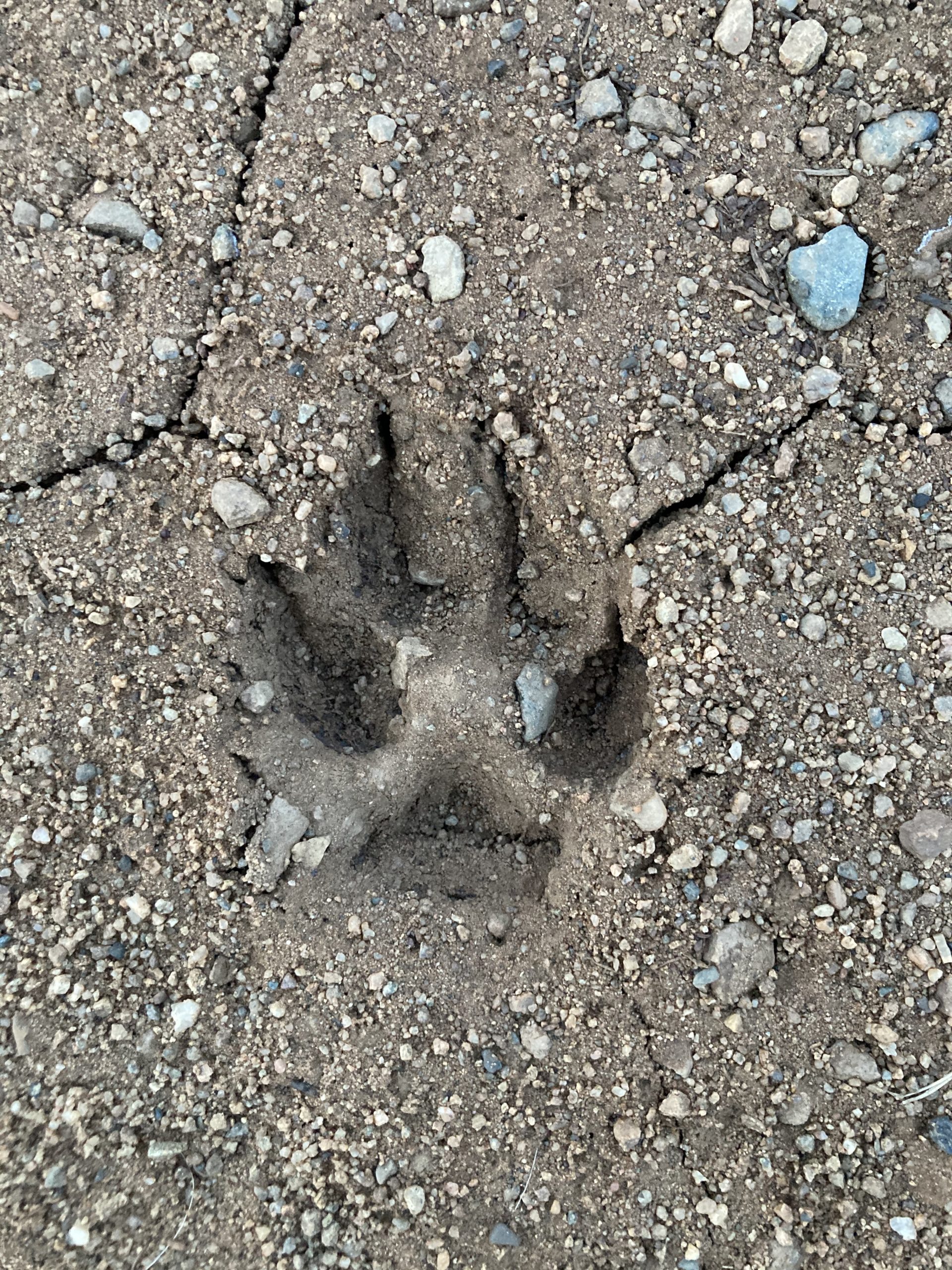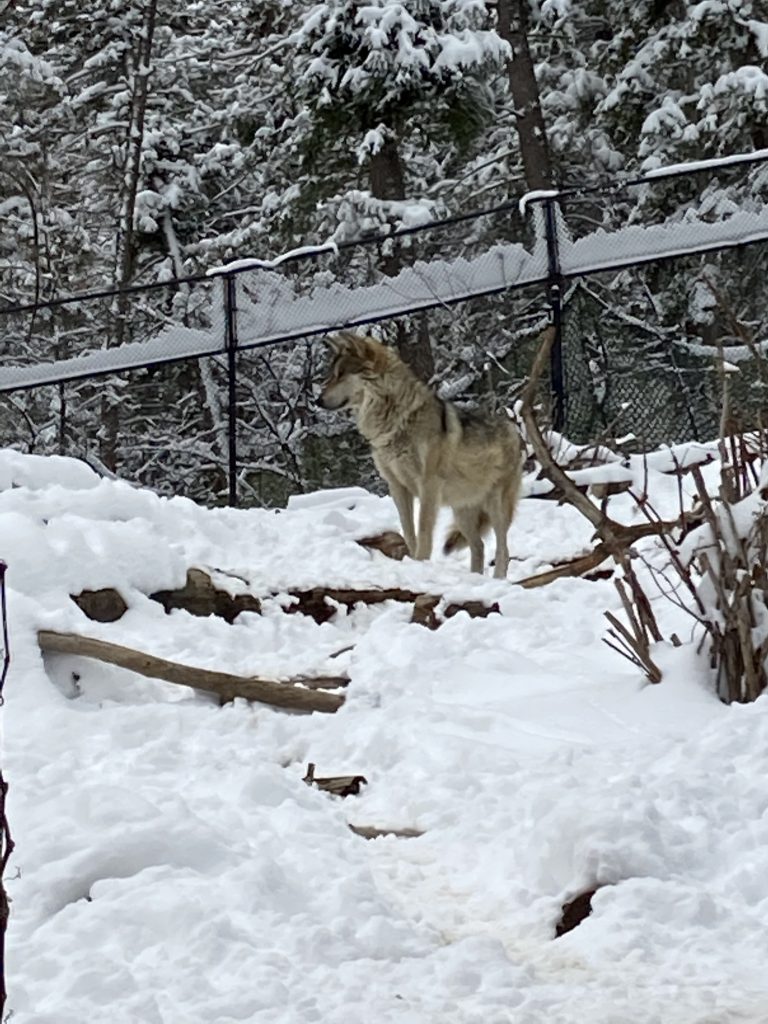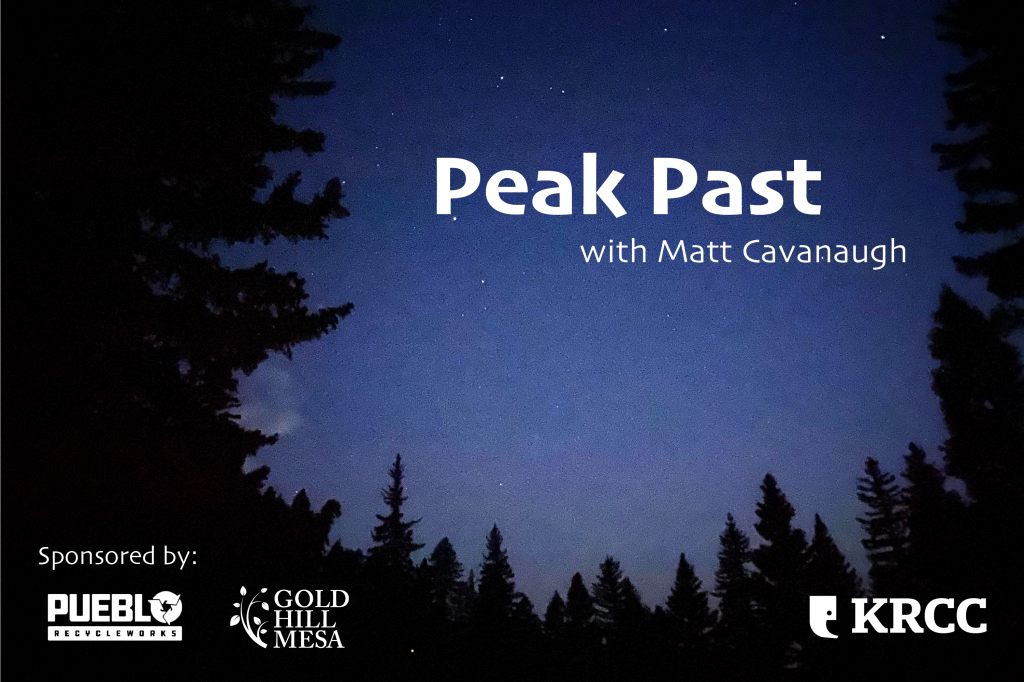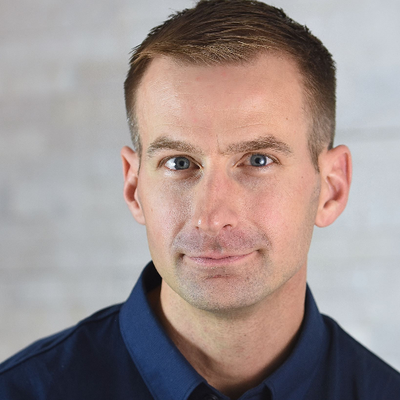
The following is part of KRCC's 'Peak Past' essay series.
If history is the study of what came before, a mud print makes a fine artifact.
Especially in the Spring.
Winter’s last blasts are past (hopefully), and those first little green shoots are pushing out of the soil. The wet ground makes a perfect canvas for dirty paw prints.
Recently, my daughter and I found an animal track out by a stream near the Arkansas River headwaters. I don’t know anything about animal tracks, so we hit the books. We picked up a field guide that would help us tell marmots from magpies. The print we found was big, 4-inches by 4-inches. We’d seen coyotes near there, around Leadville, but our guide said coyotes leave smaller prints, and so the print we saw was likely a big dog, but also could possibly have been a wolf.

Wolve's territories can range from 50 square miles to 1,000 square miles, which is roughly the straight-line distance from Colorado Springs to Saint Louis or San Francisco.
An animal print—a few dents in the dirt—gave us a view into another world, a glimpse into what the night before might’ve been like in our darkened Colorado landscape. And we can’t forget history’s less formal, less factual cousin...memory. Just as we hunted for mud prints we were also building a memory.
Nobel laureate Elie Wiesel once wrote, “Without memory there is no culture. Without memory there would be no civilization, no society, no future…That is my major preoccupation, memory, the kingdom of memory, I want to protect and enrich that kingdom, glorify that kingdom, and serve it.”
So do I.
Without memories, our family would have nothing. With memories, our family has everything…including one memorable mud print.
Until our next mountainside chat—be good, be well, and no matter what, climb on.

Peak Past (formerly Peak Perspectives) is a weekly segment written and voiced by Matt Cavanaugh, a lieutenant colonel in the U.S. Army and a resident of Manitou Springs where he lives with his wife and two young children. Through his writing, Cavanuagh explores life in the Pikes Peak region, including the gradients and subtleties of our lives in the shadow of America's Mountain.
You can find more work by Cavanaugh here.
KRCC's Abigail Beckman manages the "Peak Past" series. The opinions expressed in this publication are those of the authors. They do not purport to reflect the opinions or views of KRCC or Colorado Public Radio.
Peak Past is sponsored by Pueblo Recycle Works and Gold Hill Mesa.









